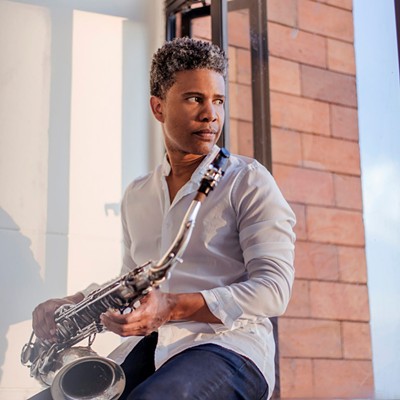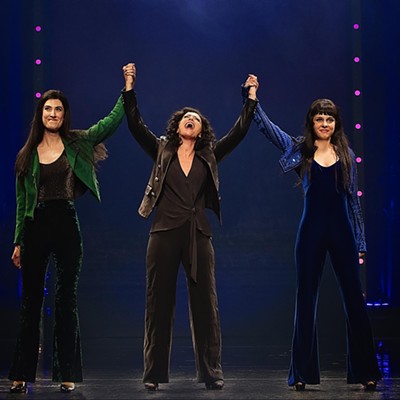Support Us
Houston's independent source of
local news and culture
account
- Welcome,
Insider - Login
- My Account
- My Newsletters
- Contribute
- Contact Us
- Sign out
Almost Too Late Discovering the Show Looking That Mirrors Real Gay Life
Randy Tibbits February 19, 2016 7:00AM
[
{
"name": "Related Stories / Support Us Combo",
"component": "11591218",
"insertPoint": "4",
"requiredCountToDisplay": "4"
},{
"name": "Air - Billboard - Inline Content",
"component": "11591214",
"insertPoint": "2/3",
"requiredCountToDisplay": "7"
},{
"name": "R1 - Beta - Mobile Only",
"component": "12287027",
"insertPoint": "8",
"requiredCountToDisplay": "8"
},{
"name": "Air - MediumRectangle - Inline Content - Mobile Display Size 2",
"component": "11591215",
"insertPoint": "12",
"requiredCountToDisplay": "12"
},{
"name": "Air - MediumRectangle - Inline Content - Mobile Display Size 2",
"component": "11591215",
"insertPoint": "4th",
"startingPoint": "16",
"requiredCountToDisplay": "12"
}
,{
"name": "RevContent - In Article",
"component": "12527128",
"insertPoint": "3/5",
"requiredCountToDisplay": "5"
}
]
As with most things that are even vaguely trendy, I didn’t discover the HBO TV series Looking until it was already passé – already cancelled, in fact.
For those not familiar with the series – and judging from the ratings, that will be most of you – Looking is the story of a group of contemporary gay men (and one straight woman) living, loving and longing in San Francisco. It stars Jonathan Groff and Russell Tovey, both recently or lately on Broadway, and half a dozen others, mostly white, mostly youngish and all immensely cute.
In concept it isn’t exactly like Seinfeld, the show in which “nothing happened,” but it’s pretty close: Nothing happens that is particularly important, except to those directly involved. Some commentators have called it boring. Others have slammed it for relying on stereotypes. I suppose they’re right on both counts. But for me, it is proving to be one of the most affecting television experiences of my by-now long, television-filled life.
Growing up a fundamentalist Christian in a small West Texas city 50 years ago, I was mystified, obsessed and confused about sex, as probably all teenagers are. But I already knew that somehow I was badly different, with an emphasis on the bad. The only bits of information available to help me figure out why came from the dictionary, and even that I read surreptitiously. The only other person who I thought might be somewhat similarly bad was so thoroughly ridiculed, gossiped about, even shunned that I made sure I stayed as close to a million miles away from him as possible. I see now that I was guilty of if-you-can’t-be-part-of-the-solution-be-part-of-the-problem cowardice, but I was young and scared.
In that world, I knew of no real-life role models I would ever want to emulate. The few fleeting figures in movies (there were none at all on TV, of course) led blackmailed lives of loneliness and despair; or even worse, were themselves twisted agents of evil and death. When The Boys in the Band came along in the late '60s, it was a big breakthrough. Sure, it was full of bitchiness, alcoholism and more despair, but at least it was in a group context and in New York City. Maybe, I thought, there was reason for hope, however hopeless in the long run.
I came out in the '70s in St. Louis – a smallish city in a lost-in-the-middle state that never was and never will be a gay mecca. But even so, there was a gay neighborhood, with gay bars and gay restaurants, gay bookstores, gay churches, even gay AA for those whose partying had gone bad. A small, maybe repressed, but actually lifesaving community.
There was also the need to find a job, a place to live, a partner (we called them “lovers” then) and, for most, the need to negotiate some relationship with family and a past, even if both were far away and long ago – all the mundane things that all non-glamorous people of whatever orientation have to do if they’re to keep going. Aside from the obvious, and perhaps crucial, difference, it was a life pretty much like that of straights. But there was that crucial difference.
Though the world is still not perfect, much has changed since then, much for the better, at least for a relatively well-off white guy like me. When I think about those times, I’m put in mind of a line from Christopher Marlowe: "But that was in another country, and besides, the wench is dead." It really was another country back then, and the wretch (I’ll alter Marlowe slightly) that I was then is dead – at least I like to think so.
Over the past few days, as I streamed and binge-watched Looking with my husband (now there’s something I never thought I’d be saying) – two seasons, 18 episodes, not quite nine hours altogether – I realized that for the first time, I was watching my own life experience on television. Not in the details, of course: I’ve never lived in San Francisco; it's 40 years on from when I was the age of most of the guys; the video game jobs some of them have didn’t even exist when I was their age; and I’m not being self-effacing when I admit that I was never that cute or that ripped (the photographs would out me if I tried to lie). But it’s my life in its ordinariness, it’s a gay ordinariness, and I haven’t seen that on the small screen – till now.
There have been other gay characters on television – even other shows that were primarily gay-centered, and I’ve watched them: the groundbreaking Will and Grace, though it had an air of buffoonery that wasn’t much like the world I lived in; Queer as Folk, both the English and American versions, exhilarating though slightly sinister and depressing; Modern Family, seemingly so inclusive, but not real. All were important steps, but none depicted the world I, and other actual people, lived in; all traded on the outré-ness of gay.
Not Looking. Looking could be Cheers or Friends – shows in which a group of supportive people try to figure out their lives – shows that I’ve watched, thinking they were telling my story. Now I know I was wrong. Because my story is a gay story, my Cheers was a gay bar, my friends were other gay men, and I’d never seen that story on television before.
Just like me, as well as the characters on Cheers and Friends, the Looking guys are living their sort of ordinary lives of going to work; going to discos; hanging out with friends; hanging home alone; wondering if he’ll call; wondering if they should call. No big deal. But they’re gay. And for a gay person, seeing that on TV is a big deal. A very big deal.
We all deserve to see ourselves on TV. We all need to. Whether good or bad, it’s the oxygen of identity formation. (At least it was in the days before media fractured into a million individual pieces.) Not seeing yourself sends a message almost as violent as an attack. Not seeing yourself makes you not quite real; certainly not quite good.
I know that white gay men aren’t uniquely ill-served by television in this regard. Has there ever been a series about real Native Americans? For black Americans there was Cosby, but not much else. (Sanford and Son and The Jeffersons were their Will and Grace.) The list goes on and on. But still, gay men have been ill-served.
One of the self-preservation techniques I learned in youth – me and lots of other gay folks, I suspect – was to convince myself that some of the important milestones of life – proms, marriage, having children among them – really didn’t matter much. Seeing myself in movies and TV fits in there, too: no big deal, I told myself.
But the truth is that those things do matter for most people, and “most people” isn’t a bad group to want to join in that respect. (Funny how I didn’t realize that “respect” had crept into my sentence until the second or third reading.)
Like marriage to my husband, which I never thought I wanted and now can’t believe I ever thought unimportant, seeing a world on television that I recognize as my own has changed me. It’s slaked a thirst for the banality of sameness – that is, the sameness of being ordinary, not fundamentally different, definitely not badly so – that I’ve repressed for so long I wasn’t any longer aware of it.
And now I’m both happy that Looking was there at all and sad that it’s already over. Which makes the show even more like life, I guess – this said by a man whose best years may not necessarily be behind him, but certainly most of whose years are.
Mostly over anyway. I hope I still have a few years left, and they say that there’s to be a two-hour Looking finale sometime soon. I’ll be looking for it, sitting beside my husband in the den, streaming and binge watching.
KEEP THE HOUSTON PRESS FREE...
Since we started the Houston Press, it has been defined as the free, independent voice of Houston, and we'd like to keep it that way. With local media under siege, it's more important than ever for us to rally support behind funding our local journalism. You can help by participating in our "I Support" program, allowing us to keep offering readers access to our incisive coverage of local news, food and culture with no paywalls.
Randy Tibbits is an independent art writer and curator, specializing in the art history of Houston. He is a member of the Board of Directors of CASETA: Center for the Advancement and Study of Early Texas Art and the coordinator of HETAG: Houston Earlier Texas Art Group. He writes art exhibition reviews for Houston Press from time to time.
Trending Arts & Culture
- Houston Bookstore Crawl Celebrates Small Businesses and Literary Diversity
- Reviews For The Easily Distracted:
Abigail - The Story Stalls But The Beat Goes On in The Cher Show at TUTS
-
Sponsored Content From: [%sponsoredBy%]
[%title%]

Don't Miss Out
SIGN UP for the latest
arts & culture
news, free stuff and more!
Become a member to support the independent voice of Houston
and help keep the future of the Houston Press FREE
Use of this website constitutes acceptance of our
terms of use,
our cookies policy, and our
privacy policy
The Houston Press may earn a portion of sales from products & services purchased through links on our site from our
affiliate partners.
©2024
Houston Press, LP. All rights reserved.





